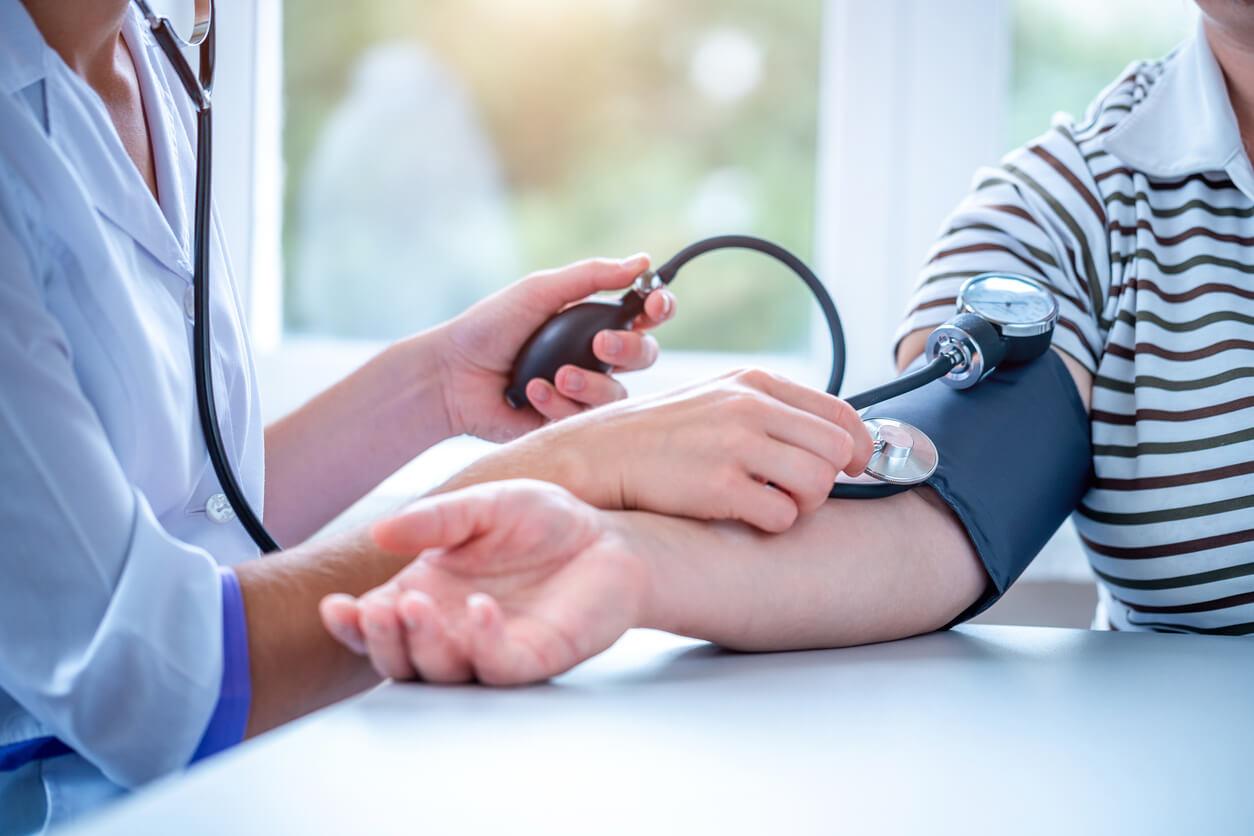Anxiety and High Blood Pressure: Reducing Your Symptoms
Key Takeaways
- Anxiety can cause temporary spikes in blood pressure (hypertension) due to stress hormones. Over time, ongoing anxiety may increase your risk of developing long-term hypertension.
- A high blood pressure diagnosis can trigger feelings of anxiety and stress. However, high blood pressure does not directly cause anxiety.
- Both anxiety and high blood pressure are treatable with lifestyle changes, medication, and/or therapy.
Both anxiety and high blood pressure (hypertension) affect millions of people across the world. They’re two separate medical conditions that occur independently of each other, and at first glance, they may seem unrelated. However, research suggests they’re more connected than you may think.
In this article, we will explore the relationship between anxiety and high blood pressure, along with different treatment strategies for reducing symptoms of both conditions.
What you need to know about anxiety
Anxiety is an excessive feeling of dread and worry. It’s often accompanied by physical symptoms, including sweating, shortness of breath, fast breathing, rapid heart rate (tachycardia), nausea, dizziness, and trouble sleeping.
If you experience anxiety often, it can be a sign of chronic anxiety or an anxiety disorder. People with chronic anxiety experience anxiety at a far more intense level and more frequently. For instance, most people worry about being late for a meeting without developing physical symptoms. However, someone with chronic anxiety may not be able to sleep or eat, or might break out into a sweat because of how stressed they feel about it.
What you need to know about high blood pressure
High blood pressure, also known as hypertension, occurs when the pressure that pumps blood through your arteries is too strong. Hypertension puts a lot of stress on your heart muscles, which can damage arteries and lead to serious conditions like heart attack, stroke, kidney failure, or vision loss.
If your blood pressure reading is always at or above 130/80 mmHg, it is considered hypertension. In the United States, almost half of all adults have hypertension. Some common causes of high blood pressure include:
- Not getting enough physical activity
- Smoking
- Older age
- Unbalanced, high-salt diets
- Overuse of alcohol
- Genetics
- Health conditions like diabetes, kidney disease, or sleep apnea
- Chronic stress
- Certain medications
Can anxiety cause high blood pressure (hypertension)?
Yes, research has found that anxiety can cause short-term spikes in blood pressure. When your body experiences anxiety, it releases stress hormones like adrenaline and cortisol into your bloodstream. These hormones can make your heart beat faster and cause your blood vessels to narrow, both of which lead to temporary elevations in blood pressure.
This automatic reaction to anxiety, panic attacks, or stress is called a fight-or-flight response. After your body calms back down, these hormones usually settle back down to normal levels. When this happens often over a long period of time, the spikes in high blood pressure can harm organs like the heart, kidney and brain.
Anxiety can also indirectly cause high blood pressure. Studies have also found that people with anxiety are more likely to engage in activities like smoking, drinking alcohol and binge eating – all of which can cause long-term high blood pressure.
Can high blood pressure cause anxiety?
While researchers aren’t sure if high blood pressure can directly cause anxiety, receiving a high blood pressure diagnosis can lead to feelings of anxiety and unease.
A study of 33,000 people found that when participants knew they had high blood pressure, they were more likely to feel distressed and anxious compared to people with normal blood pressure. On the other hand, people who did have high blood pressure (and just didn’t know it) didn’t report any changes to their stress levels. In other words, just knowing you have high blood pressure might make you feel more anxious.
Reducing your anxiety and high blood pressure symptoms
If you’re exploring treatment options for anxiety and high blood pressure, there are effective paths you can take to reduce your anxiety levels and lower blood pressure, including psychotherapy, medication, and lifestyle changes.
- Lifestyle changes: Lifestyle changes like getting at least 8 hours of sleep per night, engaging in daily physical activity, and eating a healthy diet are all effective ways to reduce anxiety and high blood pressure. The DASH diet is particularly well-known for its ability to lower blood pressure.
- Psychotherapy (talk therapy): This type of therapy uses mindfulness approaches like cognitive behavioral therapy (CBT) to help you identify and change your anxious thoughts, actions, and emotions.
Therapy and counseling can also improve high blood pressure; a 2018 study published by the American Heart Association also found when patients with high blood pressure added virtual counseling to their treatment plan, it helped to lower blood pressure and reduced their estimated risk for developing heart disease. - Medication: Certain antidepressants and anxiety medications can help reduce symptoms of anxiety when used as prescribed and under medical supervision. This includes selective serotonin reuptake inhibitors (SSRIs), serotonin-norepinephrine reuptake inhibitors (SNRIs), and beta blockers. Commonly prescribed medications for high blood pressure include diuretics, ACE inhibitors, ARBs, beta-blockers, and calcium channel blockers.
How Sesame can help
If you’re navigating high blood pressure, anxiety, or both, Sesame can help you on your path toward better health. From same-day online visits for high blood pressure to affordablevirtual anxiety appointments, Sesame connects you with thousands of caring, qualified medical providers who can offer expert advice, accurate diagnoses, and tailored treatment plans from the comfort of your home.
And for convenient, ongoing access to your anxiety medication, consider Sesame’s monthly Mental Health Rx subscription. With Mental Health Rx, your provider is available for same-day prescription requests & refills, unlimited messaging, and treatment adjustments - so you'll always have your medication when you need it.









